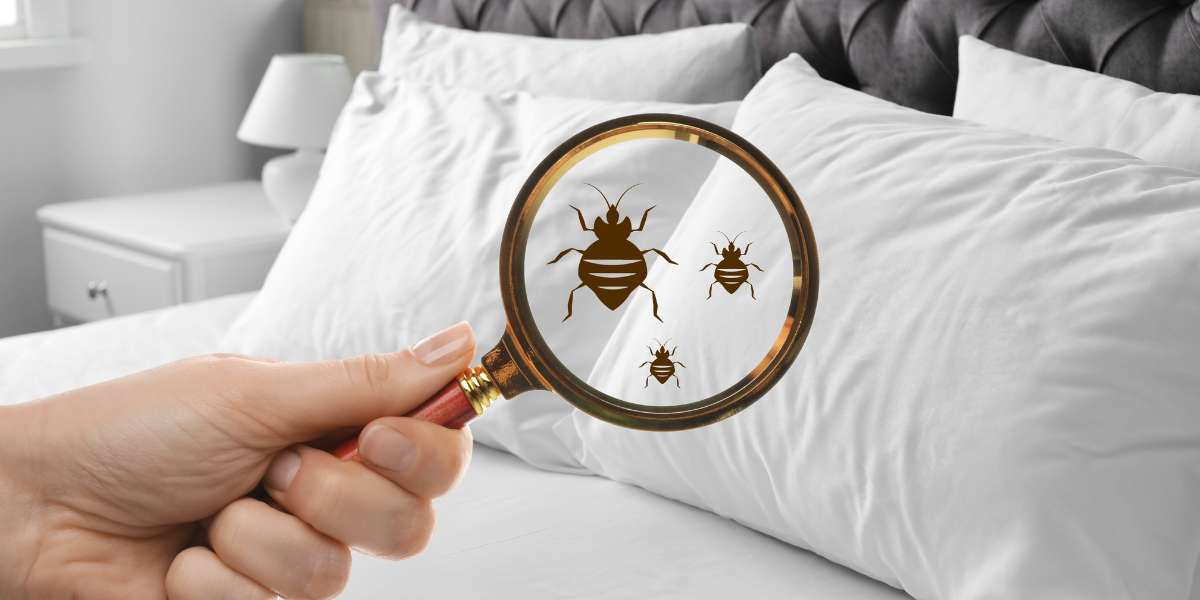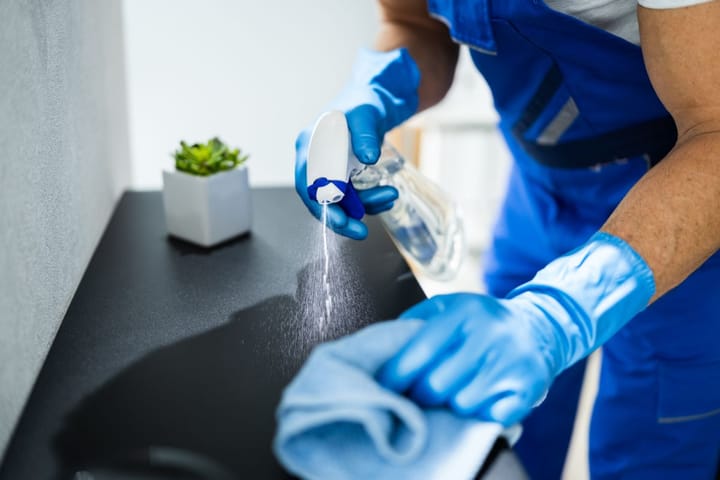Home Remedies for Bed Bugs: Natural Solutions for a Pesky Problem
Bed bugs can disrupt life with itchy bites and rashes. Tackle these pests with effective home remedies explored in this blog.

Bed bugs are notorious pests that have plagued humans for centuries. Their bites can cause itching, rashes, and a great deal of discomfort. Though small in size, their presence can significantly affect the quality of one's life. Eradicating bed bugs often requires a multi-faceted approach. Find a way to kill bed bugs like home remedies, heat treatment, or diatomaceous earth, which will be discussed below.
While professional treatments can be quite effective, there are several home remedies that can aid in the battle against these tiny intruders. This blog post will explore some of the most effective and natural home remedies for dealing with bed bugs.
Home Remedies
Please note: While these home remedies can be helpful, it's important to consult with a professional exterminator if you believe you have a significant bed bug infestation.
1. Diatomaceous Earth
This is a naturally occurring powder that works by dehydrating the bed bugs and killing them. Here's how to use it:
- Purchase food-grade diatomaceous earth.
- Sprinkle the powder around the areas where you suspect bed bugs reside.
- Leave it for several days.
- Vacuum the area thoroughly to clean up the dead bugs and the powder.
2. Baking Soda
Another drying agent, baking soda can suck the moisture out of bed bugs, killing them over time.
- Sprinkle baking soda generously around the affected areas.
- Let it sit for a week.
- Vacuum the area meticulously to ensure no bugs or eggs remain.
3. Essential Oils
Some essential oils, particularly tea tree, lavender, and peppermint oils, are believed to repel bed bugs.
- Mix 20 drops of essential oil with water in a spray bottle.
- Spray the solution on your bed, furniture, and other affected areas regularly.
- Aside from repelling bugs, your room will smell delightful!
4. Vinegar
While vinegar doesn't kill bed bug eggs, it can still help in eliminating adult bugs.
- Fill a spray bottle with pure white vinegar.
- Directly spray the vinegar onto visible bugs to kill them on contact.
5. Hot Steam
Bed bugs and their eggs can't withstand high temperatures.
- Using a steam cleaner, go over all areas that might be infested.
- Make sure to treat the seams, cracks, and crevices thoroughly.
6. Vacuuming
A rigorous vacuuming routine can significantly reduce bed bug populations.
- Vacuum your bed, furniture, carpets, and any cracks or crevices regularly.
- Ensure to empty the vacuum cleaner outside your home immediately.
7. Wash Bedding and Clothes
Washing your clothes, bed linens, and curtains can kill bed bugs at all stages of development if done correctly.
- Wash items in hot water (around 60°C or higher).
- Dry them on the highest dryer setting available.
8. Freezing
Just as they can't tolerate extreme heat, bed bugs can't survive extreme cold.
- Place infested items in a bag.
- Store them in a deep freezer (-16°C or lower) for at least four days.
9. Black Plastic Bags
In places with hot summers, this method can be useful.
- Place infested items in black plastic bags.
- Leave them outside in the sun for several hours. The heat will naturally eliminate the bugs.
10. Seal and Repair
Prevention is a significant step in the battle against bed bugs.
- Seal any cracks, crevices, and gaps in your home's walls or floor.
- Repair or replace torn mattresses or furniture.
How To Choose The Best
Choosing the best solution for a bed bug infestation involves initiating a professional inspection by a pest control expert. Various treatment options, including chemical treatments, heat treatments like steam cleaning or bed bug heaters, and cold treatments involving freezing-infested items, should be considered. Integrated Pest Management (IPM), a comprehensive approach combining different methods for long-term control, is also worth exploring.
Consider the environmental impact when selecting a solution, opting for products labeled as safe for indoor use with minimal harm to the environment and human health. Look for solutions with a residual effect to prevent reinfestation and include a follow-up plan for comprehensive treatment. Non-chemical options like diatomaceous earth, mattress encasements, and bed bug traps can be considered, particularly for those preferring less toxic alternatives.
Follow the instructions on product labels when choosing a do-it-yourself solution. Regularly vacuuming your home is a simple yet effective method to reduce the bed bug population, with proper disposal of vacuum bags or cleaning canisters being crucial to prevent re-infestation. Implement preventive measures such as sealing cracks, using mattress encasements, and maintaining good hygiene once the infestation is under control.
Conclusion
While these home remedies can be effective in reducing and managing minor bed bug infestations, it's essential to remain vigilant. Consistency is crucial. Regularly inspect your home, especially after traveling. If you believe you have a severe infestation, it's always best to consult with a professional exterminator. They can provide advice tailored to your situation and ensure that the infestation is thoroughly treated. Remember, a combination of preventive measures and timely interventions can keep your living space bed bug-free.
For further assistance or professional guidance, visit hometriangle for a list of experienced professionals in your area. Taking prompt action can ensure you and your loved ones enjoy a peaceful and itch-free sleep.
Note: When using essential oils or any other substance, always test a small patch for allergies or adverse reactions. Ensure to keep these remedies out of reach of children and pets.




Comments ()